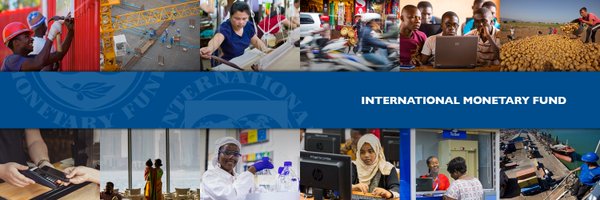 (AGENPARL) - Roma, 6 Maggio 2022
(AGENPARL) - Roma, 6 Maggio 2022(AGENPARL) – ven 06 maggio 2022 The latest IMF analysis of global economics, finance, development and policy issues shaping the world. []
[IMF Weekend Read]
Dear Colleague,
In today’s edition we spotlight discussions at the IMF’s recent Spring Meetings on the future of money, war’s long-lasting economic shocks, COVID-19’s impact on trust among the young, pressure on purchasing power in Europe, Clair Brown’s Buddhist Economics, challenges confronting Bretton Woods institutions, parallels between today’s oil-price shock and that of the 1970s, a debt-for-nature swap in Belize, and much more.
Digital Money
(PHOTO: METAMORWORKS/ISTOCK BY GETTY IMAGES)
When they first emerged, crypto “currencies” were widely seen as an anti-establishment movement that threatened the power of central banks and their monopoly control of the money supply. Yet today central banks, especially in emerging markets, are embracing their own digital currencies.
Stable coins provided some of the same investment opportunities, but central bank digital currencies (CBDCs) of the sort being piloted by many countries were the most exciting innovation, she told the panel, which also featured Brazil’s central bank chief Roberto Campos Neto, India’s finance minister Nirmala Sitharaman and the Monetary Authority of Singapore’s Ravi Menon.
Georgieva said the IMF is expanding its work on digital money in several areas, including striking the right balance in international regulation and the risks to the monetary sovereignty of smaller nations. “Disruptive is good but destructive is bad,” she said.
(PHOTO: NOUSKRABS/ISTOCK BY GETTY IMAGES)
Russia’s invasion of Ukraine is an unmitigated catastrophe for global peace and particularly for peace in Europe. But the war also greatly compounds a number of preexisting adverse global economic trends, including rising inflation, extreme poverty, increasing food insecurity, deglobalization, and worsening environmental degradation. In addition, with an apparent end to the peace dividend that has long helped finance higher social expenditures, rebalancing fiscal priorities could prove quite challenging even in advanced economies.
In an article for the forthcoming issue of F&D Magazine, Kenneth Rogoff argues that the most important macroeconomic lesson today is that in crafting responses to the latest major macroeconomic shock—whether it be the financial crisis, the pandemic, or now war in Europe—policymakers must remember that although things usually get better after a catastrophic shock, they can also get much worse. Thus monetary and fiscal policy need to incorporate resilience, and not just the maximalism that has become fashionable of late.
(PHOTO: MARK JONES / UNSPLASH)
Without trust, politicians struggle to convince people to follow their advice and instructions. From COVID-19 to climate change and now the Russian invasion of Ukraine, governments are asking or telling people to alter their behavior and make sacrifices—great sacrifices in the case of war. Yet in an environment rife with conspiracy theories, trust is becoming much harder to establish and sustain. Public responses to the pandemic have underscored the importance of trust, among the young especially, and may hold lessons for other areas of public life.
In an article for F&D Magazine’s forthcoming June issue, Cevat Aksoy, Barry Eichengreen and Orkun Saka show that poorly handled public health and other disasters erode young people’s trust in politicians and scientists for years. Drawing on opinion polls, together with data on the incidence of epidemics since 1970, the authors say that the problem—and its solution—has to do with how scientists present themselves and communicate their findings.
[Mobile landing page FandD]
Visit Us Online
Want to a print copy delivered to your home or office?
—————————————————————
(PHOTO: EURONEWS)
(PHOTO: MLENNY/ISTOCK)
(PHOTO: UC BERKELEY)
(PHOTO: IMF PHOTO)
For some, rising oil prices since the war in Ukraine and sanctions on Russia echo the 1970s, when geopolitical tensions also caused fossil fuel prices to spike. But times have changed, as the IMF’s Nico Valckx’s shows in our latest Chart of the Week. Economists track oil intensity by comparing how many barrels are needed to produce $1 million in gross domestic product, and this measure was about 3.5 times higher than current levels when crude prices almost tripled between August 1973 and January 1974.
WEEKLY ROUND-UP
—————————————————————
MARK YOUR CALENDAR
—————————————————————
[headshot]
Nick Owen
Editor
IMF Weekend Read
Thank you again very much for your interest in the Weekend Read! Be sure to let us know what issues and trends we should have on our radar.
Connect on Social

